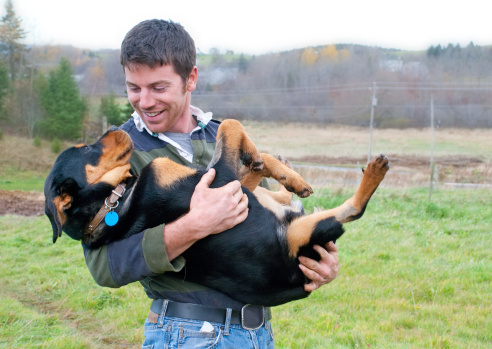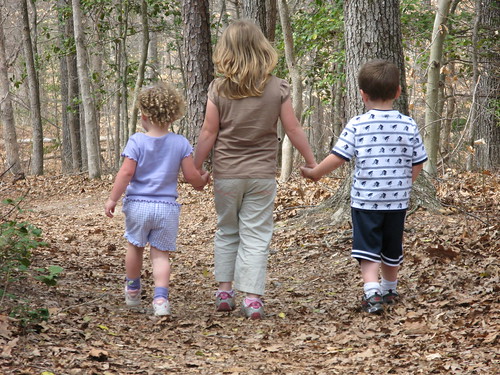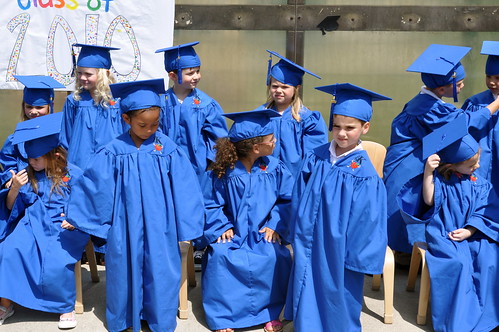


 Divorce is a family event that impacts children of all ages.There has been an uptick of divorces for middle-aged and older couples whose children may have already launched their adult lives.Just because children are not living under the same roof with a parent or parents does not mean their lives won’t be deeply affected by family changes that will occur following a divorce.
Divorce is a family event that impacts children of all ages.There has been an uptick of divorces for middle-aged and older couples whose children may have already launched their adult lives.Just because children are not living under the same roof with a parent or parents does not mean their lives won’t be deeply affected by family changes that will occur following a divorce.
At Daisy Camp, I have heard many sad stories of communication breakdowns between parents and their adult children during and after a divorce.Adult children experience unique emotional distress and practical challenges. Regardless of age, children can feel caught in the middle if parents remain in conflict.In fact, adult children can experience a heightened sense of betrayal and confusion about what has happened to their family of origin
Here are three considerations for divorcing parents of adult children:
1. It is helpful for adult children if parents are able to inform them about the divorce with a thoughtfully prepared joint We Statement.This allows parents to be more in charge of the message and the tone, and may gently discourage adult children from feeling as though they are expected to take sides or determine who is to blame.A Neutral Child Specialist can assist parents in the creation of a We Statement.
2. Adult children will continue to have personal and family-centered milestones to celebrate, including graduations, engagements, marriages and births of grandchildren. Advance planning and clear communication with adult children about parents’ readiness and willingness to jointly participate can reduce anxiety for adult children.If parents are not ready and willing to jointly participate, being able to constructively problem solve with children so the events can proceed without undue drama is also helpful to them.A worst-case scenario for adult children is feeling helplessly caught in a power struggle between parents for every family event.
3. Adult children may ask difficult questions, and parents need to be prepared to answer honestly but without making their children feel the necessity of taking sides.Keeping children at the center and out of the middle can be especially challenging if there has been an infidelity or other breach of trust in the marriage.Under these circumstances, it can be especially valuable for divorcing parents to get the support and guidance of a neutral mental health professional.
Collaborative Team Practice provides access to skilled mental health expertise from a Neutral Child Specialist or Neutral Coach to guide parents to support their adult children through a difficult transition that will impact the rest of their lives.It is a privilege to help parents create a legacy of healing and respect for their adult children and grandchildren.
 Every couple and every divorce is different. A divorce is often a complicated process involving emotional and financial elements. While there is no universal process for divorce, there are some common mistakes. Indeed, if a divorcing couple could avoid these mistakes, they would be very well on their way to a respectful process with the best possible outcomes.
1. It is a mistake to have unreasonable expectations. You will not “win” on every issue. In fact, a collaborative divorce results in mutually agreeable resolutions. The work is not about winning or losing, it is about working to come up in resolutions that are acceptable to both spouses. What matters is looking at the big picture and working toward a resolution together so that you don’t fall into the trap of seeing every decision as a win-loss issue.
2. It is a mistake to let your emotions rule you. A divorce is a very emotional process. This is understandable and a part of the process. During a divorce, you need to try and make decisions in your own best interest. Decisions out of anger or frustration may not be as long-lasting. Try to find a support network and a professional team to support you to make decisions that feel right and have long-standing value.
3. It is a mistake to not deal with your finances. An important thing to focus on is your finances. In addition to dividing up the financial assets/liabilities and property you have, it is important to think about the tax implications of your divorce. You want a support team in place that thinks about all of the financial necessities and comes up with workable and predictable resolutions that work.
4. It is a mistake to not consider a collaborative divorce. It is important to recognize that there are various process options available to you in a divorce. Even if both parties in the divorce want nothing but for the marriage to end, it is important to remember that your situation is as unique as your marriage was. A collaborative divorce may work best for you and your spouse. It will allow you to work together to determine how the marriage will end, how your assets will be divided and how child custody will be decided. This type of dissolution isn’t solely for couples who are parting amicably and have little to divide; many couples work with each other collaboratively during a divorce so that the have control of the process and how to settle property and custody issues.
Every couple and every divorce is different. A divorce is often a complicated process involving emotional and financial elements. While there is no universal process for divorce, there are some common mistakes. Indeed, if a divorcing couple could avoid these mistakes, they would be very well on their way to a respectful process with the best possible outcomes.
1. It is a mistake to have unreasonable expectations. You will not “win” on every issue. In fact, a collaborative divorce results in mutually agreeable resolutions. The work is not about winning or losing, it is about working to come up in resolutions that are acceptable to both spouses. What matters is looking at the big picture and working toward a resolution together so that you don’t fall into the trap of seeing every decision as a win-loss issue.
2. It is a mistake to let your emotions rule you. A divorce is a very emotional process. This is understandable and a part of the process. During a divorce, you need to try and make decisions in your own best interest. Decisions out of anger or frustration may not be as long-lasting. Try to find a support network and a professional team to support you to make decisions that feel right and have long-standing value.
3. It is a mistake to not deal with your finances. An important thing to focus on is your finances. In addition to dividing up the financial assets/liabilities and property you have, it is important to think about the tax implications of your divorce. You want a support team in place that thinks about all of the financial necessities and comes up with workable and predictable resolutions that work.
4. It is a mistake to not consider a collaborative divorce. It is important to recognize that there are various process options available to you in a divorce. Even if both parties in the divorce want nothing but for the marriage to end, it is important to remember that your situation is as unique as your marriage was. A collaborative divorce may work best for you and your spouse. It will allow you to work together to determine how the marriage will end, how your assets will be divided and how child custody will be decided. This type of dissolution isn’t solely for couples who are parting amicably and have little to divide; many couples work with each other collaboratively during a divorce so that the have control of the process and how to settle property and custody issues.  Becoming friends with your ex? Or even friends with your ex’s new boyfriend/girlfriend? Do these friendships sound impossible to attain? Perhaps there is something to be learned from the infamous Tiger and Elin Woods’ divorce. Elin recently went on vacation with Tiger, their two kids and Tiger’s current girlfriend, Olympic skier, Lindsey Vonn. The modern blended family – where friendships, and even vacationing together can happen successfully.
If befriending seems like a long-shot for you, try to put bitterness and grudges aside when you consider that new boyfriends/girlfriends/spouses will be around your children, whether you like it or not. Co-parenting is not easy, and it will take time and effort to find the right grove in your new lives. Daisy Camp recently hosted a co-parenting workshop at the Collaborative Alliance, titled “One Bridge to Peace,” where co-parenting tools were provided that allow even one willing, caring parent, to relate peacefully with even the most bitter and contentious co-parent.
Depending on how newly divorced you are, joining each other on vacations may seem like a long-shot, but remember, even introducing yourself and keeping the lines of communication open with you ex’s new companion can go a long way. Who knows, maybe someday you’ll find yourself vacationing in the Bahamas or at Disney with your ex!
Becoming friends with your ex? Or even friends with your ex’s new boyfriend/girlfriend? Do these friendships sound impossible to attain? Perhaps there is something to be learned from the infamous Tiger and Elin Woods’ divorce. Elin recently went on vacation with Tiger, their two kids and Tiger’s current girlfriend, Olympic skier, Lindsey Vonn. The modern blended family – where friendships, and even vacationing together can happen successfully.
If befriending seems like a long-shot for you, try to put bitterness and grudges aside when you consider that new boyfriends/girlfriends/spouses will be around your children, whether you like it or not. Co-parenting is not easy, and it will take time and effort to find the right grove in your new lives. Daisy Camp recently hosted a co-parenting workshop at the Collaborative Alliance, titled “One Bridge to Peace,” where co-parenting tools were provided that allow even one willing, caring parent, to relate peacefully with even the most bitter and contentious co-parent.
Depending on how newly divorced you are, joining each other on vacations may seem like a long-shot, but remember, even introducing yourself and keeping the lines of communication open with you ex’s new companion can go a long way. Who knows, maybe someday you’ll find yourself vacationing in the Bahamas or at Disney with your ex!  Recently I received a referral from Kristin, a client I represented in 2011 in her collaborative divorce. In thanking her for the referral, I took the opportunity to ask her how she was doing. With her permission, her response is reproduced below. At the time of her divorce, Kristin and her husband had two (2) children ages 10 and 12.
Hi Tonda,
Nice to hear from you. I will fill you in with some detail for examples of what can lay on the other side of divorce to help you give hope to your clients going through this painful process. Everyone is doing well here; the kids are doing really well splitting their time between our 2 households (4 miles apart).
Tom and I have a much better relationship now than when we were getting divorced. We talk several times per week and text, usually daily, mostly regarding kids’ stuff like coordinating activities/homework and just general parenting issues. We also try to meet for coffee sometimes to discuss things more in depth like holidays and vacation planning and kids’ milestones. We see each other at their basketball games, tennis matches, orchestra concerts, etc, even holidays sometimes, and usually sit together with our new spouses. Tom and I both got re-married a couple of months ago and Tom and his wife are expecting a baby in March. I married a pharmacist that I met after the divorce and we got married in Yosemite in August of this year. The four of us get along well and the kids get along well with both our spouses so I have nothing but great things to say about the collaborative process. It really helped us to avoid a lot of un-pleasantries and keep our family together without staying married, which is really great.
I hope all is well with you and your practice. I will continue to recommend people look into collaborative divorce as an option. It has been very helpful to us to use the divorce agreement as a structure, but we stay very flexible with rearranging schedules, holidays and vacations etc. We have actually never even had an argument since the divorce. It has helped us build a sense of cooperation and the collaborative process really reinforced putting the kids as the center point for all decisions going forward. One of the things that always stuck in my mind through the whole process was that Tom and I decided that even though we did not have a successful and healthy marriage, we would have a successful and healthy divorce and be successful and healthy parents.
Best,
Kristin
Recently I received a referral from Kristin, a client I represented in 2011 in her collaborative divorce. In thanking her for the referral, I took the opportunity to ask her how she was doing. With her permission, her response is reproduced below. At the time of her divorce, Kristin and her husband had two (2) children ages 10 and 12.
Hi Tonda,
Nice to hear from you. I will fill you in with some detail for examples of what can lay on the other side of divorce to help you give hope to your clients going through this painful process. Everyone is doing well here; the kids are doing really well splitting their time between our 2 households (4 miles apart).
Tom and I have a much better relationship now than when we were getting divorced. We talk several times per week and text, usually daily, mostly regarding kids’ stuff like coordinating activities/homework and just general parenting issues. We also try to meet for coffee sometimes to discuss things more in depth like holidays and vacation planning and kids’ milestones. We see each other at their basketball games, tennis matches, orchestra concerts, etc, even holidays sometimes, and usually sit together with our new spouses. Tom and I both got re-married a couple of months ago and Tom and his wife are expecting a baby in March. I married a pharmacist that I met after the divorce and we got married in Yosemite in August of this year. The four of us get along well and the kids get along well with both our spouses so I have nothing but great things to say about the collaborative process. It really helped us to avoid a lot of un-pleasantries and keep our family together without staying married, which is really great.
I hope all is well with you and your practice. I will continue to recommend people look into collaborative divorce as an option. It has been very helpful to us to use the divorce agreement as a structure, but we stay very flexible with rearranging schedules, holidays and vacations etc. We have actually never even had an argument since the divorce. It has helped us build a sense of cooperation and the collaborative process really reinforced putting the kids as the center point for all decisions going forward. One of the things that always stuck in my mind through the whole process was that Tom and I decided that even though we did not have a successful and healthy marriage, we would have a successful and healthy divorce and be successful and healthy parents.
Best,
Kristin  Dogs have long been known for their ability to have healing effects on the sick, but did you know that adopting a dog while going through the divorce process can provide another wonderful form of therapy? Whether getting a new puppy or adopting a dog, there is value in adding a furry companion to your life. Man’s (or woman’s) best friend alleviates that empty feeling you may now be experiencing when you walk in the door at night.
Divorce often time leaves you feeling unwanted, just like many of those dogs at the shelter, which makes that canine even more relatable. Perhaps that dog came to the shelter from a divorced family herself. It has been proven that people benefit from interacting with canines. Simply petting a dog can decrease levels of stress hormones, regulate breathing, and lower blood pressure. Research also has shown that petting releases oxytocin, a hormone associated with bonding and affection, in both the dog and the human. Dogs respond to human emotions, and seem to know just when their companion needs a little extra loving.
A dog, or other animal, can also be helpful for children coping with a divorce. Research shows that a dog can be therapeutic for a child experiencing a divorce crisis. A pet teaches a lot about coping skills, at a time when their parents may not coping very well. Cuddling up to a dog or other critter can be calming, and teaching a dog a new trick can be rewarding.
If you are looking for a constant companion, who will help reduce your stress levels (and won’t talk back!), adding a new furry friend to your home may be a good divorce healing solution for you.
Dogs have long been known for their ability to have healing effects on the sick, but did you know that adopting a dog while going through the divorce process can provide another wonderful form of therapy? Whether getting a new puppy or adopting a dog, there is value in adding a furry companion to your life. Man’s (or woman’s) best friend alleviates that empty feeling you may now be experiencing when you walk in the door at night.
Divorce often time leaves you feeling unwanted, just like many of those dogs at the shelter, which makes that canine even more relatable. Perhaps that dog came to the shelter from a divorced family herself. It has been proven that people benefit from interacting with canines. Simply petting a dog can decrease levels of stress hormones, regulate breathing, and lower blood pressure. Research also has shown that petting releases oxytocin, a hormone associated with bonding and affection, in both the dog and the human. Dogs respond to human emotions, and seem to know just when their companion needs a little extra loving.
A dog, or other animal, can also be helpful for children coping with a divorce. Research shows that a dog can be therapeutic for a child experiencing a divorce crisis. A pet teaches a lot about coping skills, at a time when their parents may not coping very well. Cuddling up to a dog or other critter can be calming, and teaching a dog a new trick can be rewarding.
If you are looking for a constant companion, who will help reduce your stress levels (and won’t talk back!), adding a new furry friend to your home may be a good divorce healing solution for you.  In the list of life’s most stressful events, divorce is near the top of the list. Divorce can cause health concerns, sleeplessness, job performance problems, distraction, and short tempers. It can damage relationships with others and, obviously, can be very hard on children. People going through divorce often exert great energy trying to keep things together, while also trying to make decisions with long-lasting implications.
It is important to find ways to lessen stress during divorce and keep calm. Here are four tips to managing stress during divorce:
In the list of life’s most stressful events, divorce is near the top of the list. Divorce can cause health concerns, sleeplessness, job performance problems, distraction, and short tempers. It can damage relationships with others and, obviously, can be very hard on children. People going through divorce often exert great energy trying to keep things together, while also trying to make decisions with long-lasting implications.
It is important to find ways to lessen stress during divorce and keep calm. Here are four tips to managing stress during divorce:
 In my meetings with kids, I ask them to share perspectives on family, including hopes and wishes for how family might work best when parents are living in separate homes. I recently had the privilege to meet with four amazing young women; siblings whose parents are getting unmarried in a Collaborative Team Process.
I continually learn from kids with whom I work as a neutral child specialist. Each of these girls made thoughtful observations for me to share with their parents, so I asked them and their parents if I could write a blog post to share these ideas with others. Because they are thoughtful, empathetic and generous people, they agreed, and have my deep gratitude and appreciation.
In my meetings with kids, I ask them to share perspectives on family, including hopes and wishes for how family might work best when parents are living in separate homes. I recently had the privilege to meet with four amazing young women; siblings whose parents are getting unmarried in a Collaborative Team Process.
I continually learn from kids with whom I work as a neutral child specialist. Each of these girls made thoughtful observations for me to share with their parents, so I asked them and their parents if I could write a blog post to share these ideas with others. Because they are thoughtful, empathetic and generous people, they agreed, and have my deep gratitude and appreciation.
Below are words of wisdom from Lauren, Kelly, Emily and Grace. Though focusing on one quote per girl, I want to stress that each of them had many wonderful insights about all the areas mentioned.
Lauren on Holiday and Birthday Celebrations
“I want one graduation party, not two. This is about me, not my parents. And I want them both to come and to get along.”
Lauren’s words represent the viewpoint of many kids, and are a powerful reminder that children of all ages have strong feelings about family celebrations. Lauren also talked about preserving family traditions on both sides for holidays, like Christmas. Tuning in to kids’ perspectives can help parents figure out how to preserve important traditions while adding new ones, providing grounding and clarity for all family members.
Kelly on Co-parent Cooperation
“I want my parents to remember they’re both always my parents no matter which house I am at.”
Kelly’s words articulate the heart of the positive and profound shift in family law away from attaching custody labels toward co-parenting and creating parenting plans based on the best interests of kids. Kids dislike the feeling of going from “Mom Island” to “Dad Island,” and feel safer if parents respect and honor their relationships with both parents. Effective co-parent communication is a centerpiece of parenting and relationship plans in Collaborative Team Practice.
Emily on Transitions between Homes
“I hope my parents will have a one to two hour window for me to go from one house to the other, so it’s do-able if I am in the middle of something or with a friend.”
One of the most challenging aspects of a divorce for kids is transitioning between homes. It is vital that parents work together to make transitions as smooth, cordial and stress-free as possible. Emily’s words are an important reminder to regularly check in and listen to kids about what is working well and not so well in transitions. Parents need patience and empathy: kids have lives too!
Grace on Family Transformation
“I want us to be a together and apart family. We’re still a family, but we’re just split.”
Grace absolutely nailed why I do the work I do as a neutral child specialist. What she said is both insightful and core to helping kids develop resilience. It is so important that all family members move forward with the deep understanding that getting unmarried does not end a family with children, but transforms it.
Thank you Lauren, Kelly, Emily and Grace. We will keep listening!
Guiding Principle #1: The crisis of divorce should never become a trauma for children.
Although divorce will almost always be painful and difficult for children, it is entirely possible for parents to keep it from becoming traumatic. Children can be traumatized when trapped in an environment of high conflict, danger, abandonment or abuse. None of these words should describe a child’s experience of divorce.
Guiding Principle #2: Children must be kept in the center and out of the middle of their parents’ conflict.
It is understandable that divorcing parents will experience conflict with each other. It takes mindfulness and empathy for parents to set the kind of clear boundaries that keep their children from being drawn into the conflict. Being in the middle always impacts children negatively. It is toxic to use children as confidantes, ask them to take sides against the other parent or disparage the other parent in their presence. The decision to take the high road and not put children in the middle is one that parents will never regret.
Guiding Principle #3: There is such a thing as a good divorce for families.
Judith Wallerstein’s longitudinal research on the impact of divorce on children painted a bleak picture of negative, long term developmental, social, academic, emotional and behavioral effects. Wallerstein studied families who divorced in 1971, a time when family law was typically adversarial and divorce was socially stigmatized. In 1994, Constance Ahrens wrote The Good Divorce: Keeping your Family Together when your Marriage is Falling Apart based on her own longitudinal study. Ahrens found that when divorced parents could reduce conflict, communicate effectively, and co-parent cooperatively, their children did not experience long term adverse effects.
These children continued to feel a reassuring sense of family, transformed from under one roof to under two. With the right kind of personal and professional support, parents can make a healthy transition from a divorced couple to effective co-parents. Making this transition successfully makes a huge difference in the quality of life for children.
Non-adversarial methods of divorce undoubtedly enhance parents’ ability to create child-centered outcomes. Since 1990, there has been a sea change in family law, including models of collaborative practice, mediation and cooperative divorce. When divorce must happen, choosing a child-centered divorce process is another decision that most parents will never regret. For more information on Collaborative Team Practice, please visit the website of the Collaborative Divorce Institute of Minnesota.
 Divorce lawyers, when trying to urge their clients to settle their divorce case and save fees, will sometimes point out that a costly divorce is, directly or indirectly, draining the college fund for their children. This is a stark reality that, on occasion, will cause clients to pause long enough to set aside some emotional issues in order to preserve their nest egg.
I have found that comparing college savings to divorce savings can be helpful in other ways as well. In working with divorcing couples for more than 30 years, I am often very impressed by the enormous sacrifices that middle class Americans will make to assure that their children get a good college education. This seems to be so embedded into the American dream that is not unusual to see parents fund their children’s college education even if it means depleting all savings or incurring great debt. In many divorce cases, the college savings are the “sacred cow”, the last thing to be impinged upon, based on shared belief that “the children come first.”
For the most part, this is incredibly admirable. College education, or other post-secondary opportunities, can truly make a difference for our children and watching parents sacrifice for the greater good generally seems like a good idea. However, during a divorce, the sacrifices made for post-college education needs to be compared to other family sacrifices.
Many adult children, who have gone through college, as well as their parents’ divorce, claim that getting through their parents’ divorce was the bigger challenge. More important, it is often easy to see that the way their parents handled their divorce had an even greater impact on their future lives than whether they had to take out a student loan to cover a larger portion of their college education. It is easy to see why this would be true. Yet, it is a hard realization for parents to accept when they are asked to consider “investing” in their children’s divorce in a similar light to an investment in college.
For example, in most cases we recommend that parents work with a child specialist during a divorce; someone who can make sure that we are truly hearing the needs of the children and who can guide the parents in creating and implementing a parenting plan that is truly in the best interest of their children. The investment in a child specialist generally ranges between $1,000 and $2,000, a relatively small investment when you consider what is at stake. Yet, I see many really good parents who balk at this investment, even while committing tens of thousands of dollars to make sure that their children are not overburdened by student loans.
I get it, in a way. A college education seems like a more tangible thing and, if you have never been through a divorce or worked with a child specialist, it may be hard to envision the benefits of a child specialist in the same way. In truth, there are times in which working with the child specialist has only a slightly advantageous effect on co-parenting. However, there are other times when the difference is life changing. And when you carefully consider what is at stake, I can usually, without hesitation, recommend that investment, even at the risk that it could (although not necessarily) add $120 to $200 per month to little Johnny’s student loan payments.
Divorce lawyers, when trying to urge their clients to settle their divorce case and save fees, will sometimes point out that a costly divorce is, directly or indirectly, draining the college fund for their children. This is a stark reality that, on occasion, will cause clients to pause long enough to set aside some emotional issues in order to preserve their nest egg.
I have found that comparing college savings to divorce savings can be helpful in other ways as well. In working with divorcing couples for more than 30 years, I am often very impressed by the enormous sacrifices that middle class Americans will make to assure that their children get a good college education. This seems to be so embedded into the American dream that is not unusual to see parents fund their children’s college education even if it means depleting all savings or incurring great debt. In many divorce cases, the college savings are the “sacred cow”, the last thing to be impinged upon, based on shared belief that “the children come first.”
For the most part, this is incredibly admirable. College education, or other post-secondary opportunities, can truly make a difference for our children and watching parents sacrifice for the greater good generally seems like a good idea. However, during a divorce, the sacrifices made for post-college education needs to be compared to other family sacrifices.
Many adult children, who have gone through college, as well as their parents’ divorce, claim that getting through their parents’ divorce was the bigger challenge. More important, it is often easy to see that the way their parents handled their divorce had an even greater impact on their future lives than whether they had to take out a student loan to cover a larger portion of their college education. It is easy to see why this would be true. Yet, it is a hard realization for parents to accept when they are asked to consider “investing” in their children’s divorce in a similar light to an investment in college.
For example, in most cases we recommend that parents work with a child specialist during a divorce; someone who can make sure that we are truly hearing the needs of the children and who can guide the parents in creating and implementing a parenting plan that is truly in the best interest of their children. The investment in a child specialist generally ranges between $1,000 and $2,000, a relatively small investment when you consider what is at stake. Yet, I see many really good parents who balk at this investment, even while committing tens of thousands of dollars to make sure that their children are not overburdened by student loans.
I get it, in a way. A college education seems like a more tangible thing and, if you have never been through a divorce or worked with a child specialist, it may be hard to envision the benefits of a child specialist in the same way. In truth, there are times in which working with the child specialist has only a slightly advantageous effect on co-parenting. However, there are other times when the difference is life changing. And when you carefully consider what is at stake, I can usually, without hesitation, recommend that investment, even at the risk that it could (although not necessarily) add $120 to $200 per month to little Johnny’s student loan payments.